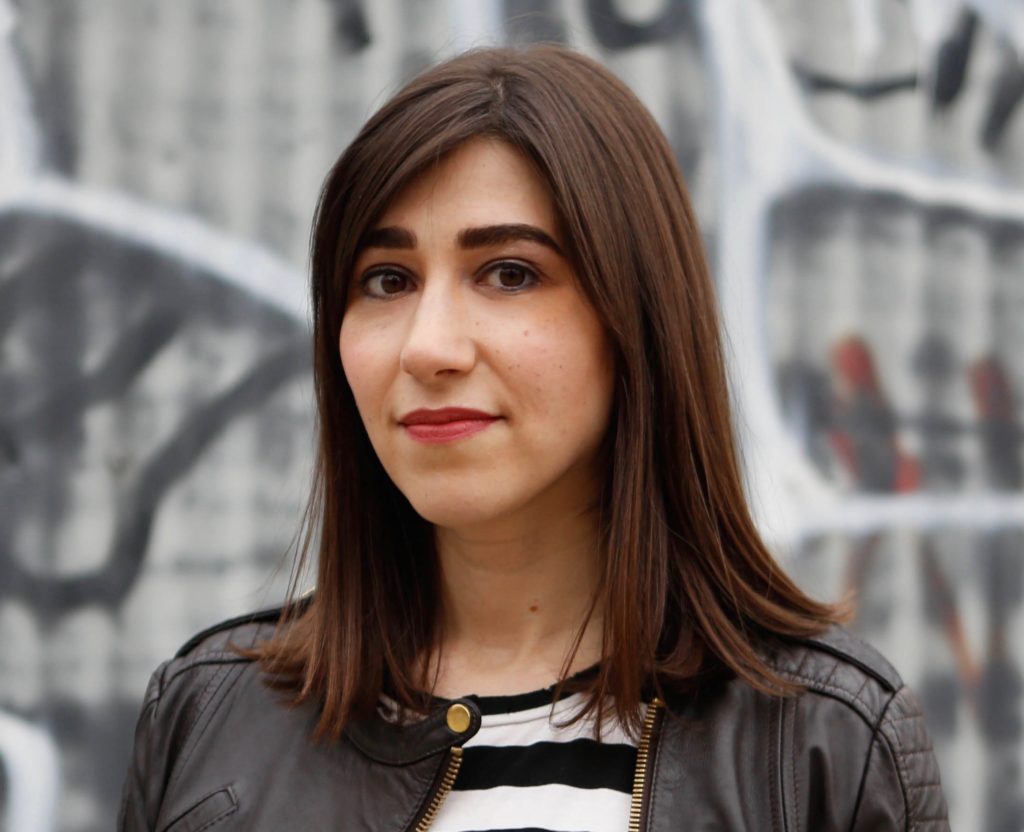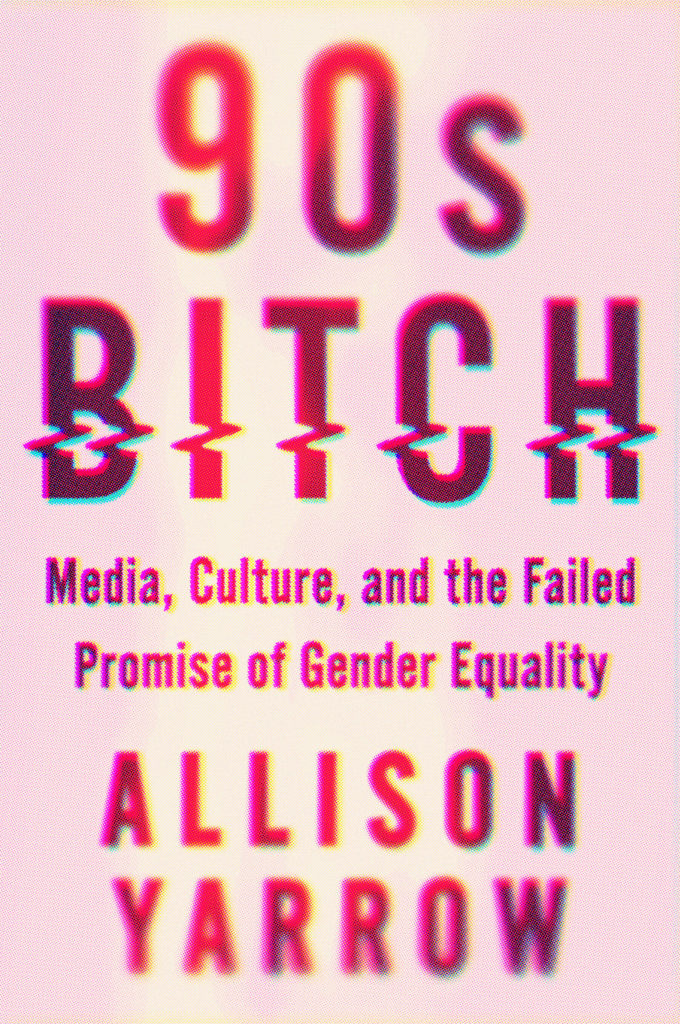
The 90s: the Macarena invaded sporting matches and elementary school gym classes everywhere. Hair was big, jeans were high and Nickelodeon was in its slimy prime. Gen X was the Generation Next, the Spice Girls preached Girl Power and Britney Spears was the all-American teen dream. But was it actually a great decade for women?
I recently had the absolute privilege of speaking with Allison Yarrow, journalist and author of the book 90s Bitch: Media, Culture, and The Failed Promise of Gender Equality. She, along with Bridget Todd of “How Stuff Works,” will present the “How 90s Bitchification Led to #MeToo” panel at this year’s SXSW. I wanted to get a feel for what we can expect when we attend this panel, as well as some insight as to how it came to be. Don’t be fooled by the connotations some may have for the word – she is very clear that it’s NOT a nice term.
First of all, can you tell me a bit about yourself and why you thought it was the perfect time to present this panel?
“I’m a journalist who has reported on gender, policies and healthcare for 13 years, and I’m the author of 90s Bitch: Media, Culture, and The Failed Promise of Gender Equality. It’s a cultural history of how sexist 90s narratives (enabled by the onset of the 24-hour news cycle) poisoned girlhood and shaped the millennial generation. I’m an old millennial raised in Macon, Georgia, but I now live in Brooklyn, New York.”
“Many of us have been wondering lately how we got to this moment. A misogynist occupies the White House. A credibly accused sexual harasser was recently admitted to the Supreme Court (again). In fact, the number of male icons in our society who have been accused of sexual harassment, abuse and worse is so great that they could field a large sports team. And just think about the non-famous ones out there. If we want to understand how sexism saturates our present, we need to reckon with the history of sexism in the 90s that brought us here.”
“I’ll talk about that, and then the incredible Bridget Todd, who hosts the Stuff Mom Never Told You and Afropunk podcasts, will interview me about the book. This will be followed by a signing.”
You released a book last year called “90s Bitch.” What makes someone a 90s bitch?
“The title isn’t an embrace of the term. The word bitch has a long, documented history of reducing women to their sexual function and thwarting their progress. During the 90s, it was a fact that the word bitch was routinely used to deride, objectify and dismiss women. There was an epidemic of what I call “bitchification” — every woman who made the news was made into a bitch, the only difference between them was what kind. This is bad, but what’s worse is that the maligning treatment of public women and the objectification of women and girls impacted girlhood. Girls in the 90s began losing their self-esteem at an alarming rate. Rates of eating disorders, self-harm behaviors, depression and suicide attempts climbed. These problems stemmed from bitchification and the unhealthy media environment girls grew up in.”
…every woman who made the news was made into a bitch, the only difference between them was what kind.
Allison Yarrow
Did Meredith Brooks’ reclaiming of the title make it more acceptable?
“Many people used and said they were reclaiming the word bitch during the 90s. Many people say that they are reclaiming the word bitch today. But the word still has negative connotations. Resting bitch face mocks women for their facial expressions. Basic bitches are skewered for their consumer choices. Men are insulted as bitches when they are deemed to be feminine. And the verb bitch means to complain.”
What is your take on the recent films and television events about such people as Marcia Clark and Tonya Harding? Do you think they help or hurt the cause?
“It’s clear from recent film and television just how deeply stories of 90s women (and their bitchification) were burned into our subconscious. It’s nice to see that some of these women are participating in the retelling of their own stories this time. They didn’t really have that option in the 90s.”
What is it about the 90s that you think made the media and people in general start to come for these women?
“The creation of the 24-hour news cycle during and after the Persian Gulf war created an infrastructure that allowed for news stories to exist for days, weeks, months and sometimes years. News organizations realized that the audience they had built covering the war was actually more interested in Hollywood, politics and scandal. And those topics were cheaper to cover than war. People think of the 90s as the dawn of the internet, but television was the largest media stage of all. Television had a relentless fixation on public figures, and women, most of all. Women became content. And the bulk of newsrooms and entertainment heavyweights telling and shaping the stories of women were men.”

You write about Anita Hill in your book. Many people compared the Brett Kavanaugh proceedings and the testimony of Dr. Christine Blasey Ford to her accusations of Clarence Thomas. Has anything changed since the 90s? What makes their stories different? The same?
“It was painful and dispiriting for people who had thought we made progress since 1991 to see history repeat itself. When Anita Hill charged sexual harassment, in retaliation, she was accused of lying, of being obsessed with her boss and being an “erotomaniac.” We saw insults lobbed at Christine Blasey Ford, too. She was also often called a credible witness. She was, but I’m sure some of her believability hinged on her skin color and its attendant privilege. Still, at the end of the day, her privilege, credibility and her voice were no match for an entitled white man pursing a job he and his colleagues believed he deserved. Those who voted in Kavanaugh ultimately didn’t care that he was accused. His role on the court was prioritized.”
Without giving too much away, what is your biggest takeaway from the #MeToo movement and how it’s changed (or not changed) our society?
“During the 90s, we didn’t see the sexism destroying lives and corroding society. Many women have spent their lives gaslighting themselves about the sexism they have experienced. Now we know we’re not alone. That’s what the Me Too movement and #MeToo have done. We now see the sexism that shapes our society, and we can’t unsee it. I’m incredibly optimistic, because we have to see sexism and racism to end them. And now we see them.”
Featured image: Allison Yarrow photo credit Sharon Attia
For more information about this subject, please check out the How 90s Bitchification Led to #MeToo panel on Saturday, March 9 at 11 a.m. at the Austin Convention Center, room 10AB and read Allison’s book, 90s Bitch: Media, Culture, and The Failed Promise of Gender Equality, available from Harper Collins.

Comments are closed, but trackbacks and pingbacks are open.